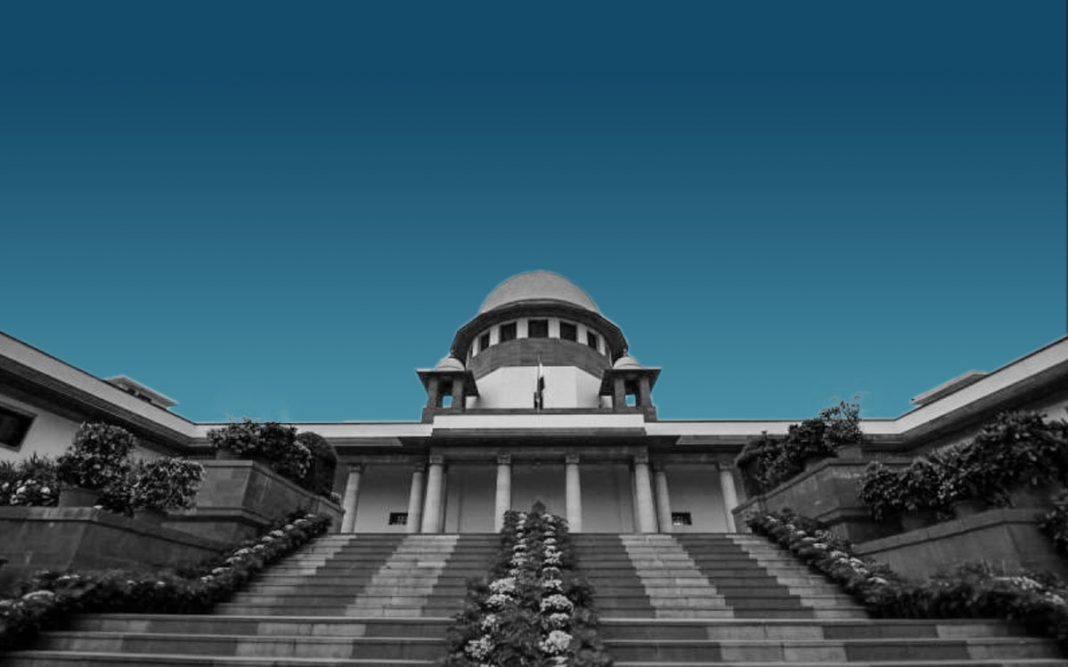The Supreme Court has set aside the summons passed by the Sessions Judge, Khiri saying the Sessions Judge will apply his mind in the light of principles laid down by the Constitution Bench.
The bench of Justices K.M. Joseph and P.S. Narasimha allowed the appeal filed against the summons issued purporting to invoke power under Section 319 of the Code of Criminal Procedure (CrPC), which has brought the newly summoned person to the Supreme Court. The facts of the case is that an FIR came to be lodged on 27.06.2015 by the woman who alleged in the FIR that her husband (deceased) told her that he is leaving for work to meet the appellant. The deceased was the driver of the appellant. In the FIR, it is stated that at 2 pm, the deceased called and informed his wife that he is going to Gola and shall return by evening.
Thereafter, her husband’s phone was switched off and an unidentified dead body was found. The woman reported that the murder of her husband was committed by his employer (appellant ) with the help of his friends. The statement came to be recorded from her on 27.06.2015. She also gave an additional statement. Thereafter, the police investigated the matter and chargesheet was filed against three persons.
An application was filed on behalf of the prosecution invoking Section 319 Cr.P.C. The Sessions Judge, Khiri, by order dated 11.09.2018, took the view that the power under Section 319 Cr.P.C. has to be invoked and ordered to summon the appellant. This order came to be unsuccessfully challenged before the High Court. It is thus the appellant came before the Supreme Court.
Gaurav Srivastava, counsel for the appellant, pointed out that the Courts have erred in law in invoking power under Section 319 Cr.P.C. The appellant has relied on the judgments of this Court rendered in Hardeep Singh v. State of Punjab and Others (2014) 3 SCC 92 and Labhuji Amratji Thakor and Others v. State of Gujarat and Another AIR 2019 SC 734.
Also Read: NCPCR files affidavit in AltNews co-founder plea, wants direction to Twitter to remove post
The Apex Court observed that the statement of law with regard to the standards which have been fixed by the Court for invoking the power under Section 319 Cr.P.C is contained in the case of Hardeep Singh v. State of Punjab and Others (2014) 3 SCC 92 , which states :-
“105. Power under Section 319 Cr.P.C. is a discretionary and extraordinary power. It is to be exercised sparingly and only in those cases where the circumstances of the case so warrant. It is not to be exercised because the Magistrate or the Sessions Judge is of the opinion that some other person may also be guilty of committing that offence. Only where strong and cogent evidence occurs against a person from the evidence led before the court that such power should be exercised and not in a casual and cavalier manner.
106. Thus, we hold that though only a prima facie case is to be established from the evidence led before the court, not necessarily tested on the anvil of cross-examination, it requires much stronger evidence than mere probability of his complicity. The test that has to be applied is one which is more than prima facie case as exercised at the time of framing of charge, but short of satisfaction to an extent that the evidence, if goes unrebutted, would lead to conviction. In the absence of such satisfaction, the court should refrain from exercising power under Section 319 Cr.P.C. In Section 319 Cr.P.C. the purpose of providing if ‘it appears from the evidence that any person not being the accused has committed any offence’ is clear from the words “for which such person could be tried together with the accused.” The words used are not ‘for which such person could be convicted’. There is, therefore, no scope for the court acting under Section 319 Cr.P.C. to form any opinion as to the guilt of the accused.”
Also Read: Supreme Court quashes criminal proceedings, NBW against woman accused of abetting suicide
Therefore the Court is of the view that matter should be reconsidered.
The Top Court observed that the test as laid down by the Constitution Bench of this Court for invoking power under Section 319 Cr.P.C. inter alia includes the principle that only when strong and cogent evidence occurs against a person from the evidence the power under Section 319 Cr.P.C. should be exercised. The power cannot be exercised in a casual and cavalier manner. “The test to be applied, as laid down by the Supreme Court, is one which is more than prima facie case which is applied at the time of framing of charges.”
“We are of the view that from the facts of this case, it becomes necessary for us to direct the Sessions Judge, Khiri, to consider the matter afresh in the light of the principles which have been clearly enunciated by this Court. The appeal is accordingly, allowed. The impugned judgment will stand set aside and we also set aside the order passed by the learned Sessions Judge issuing summons. The Sessions Judge, Khiri, will apply his mind in the light of the principles which have been laid down by the Constitution Bench,”
-the order reads.


